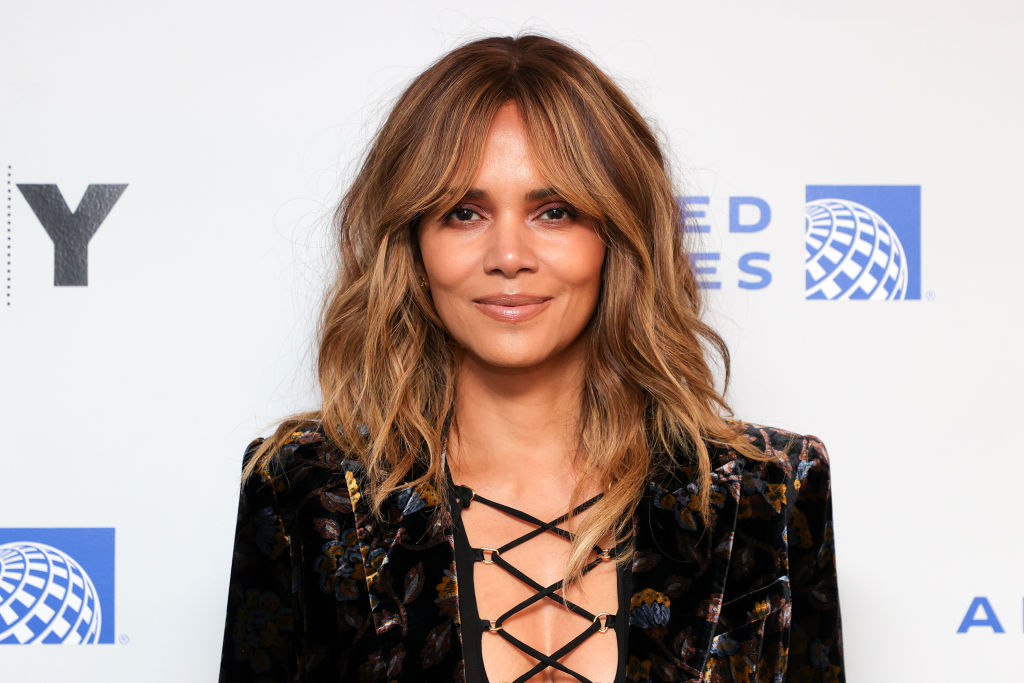When it comes to breaking barriers in Hollywood, Halle Berry is at the top of that list. In 2002, she won an Academy Award for Best Actress, making her the first and only Black woman to do so. Now she's making strides in another capacity by making her directorial debut with her new Netflix film, Bruised. The Ohio-native is all about history-making moments, so it's no surprise that she tapped the South Bronx rapper Cardi B to co-executive produce the accompanying score, the first-ever all-female hip-hop soundtrack. A true reflection of the perseverance and game-changing mindset she's exemplified in her career journey.
When asked what she's learned or relearned about herself throughout the process of bringing her character Jackie Justice to life, she said, "That I'm strong, and I can do anything I set my mind to doing. That I can be relentless in my pursuit of something if it's extremely meaningful to me, and I've proven that to myself throughout my life. I got a chance to realize I can bite off something that seems scary and insurmountable, but I can find a way to get it done."
Read on to check out more from our exclusive chat with the mom of two and award-winning actress. We spoke about tapping into your courage, especially when faced with adversity, sustaining longevity in an industry where you can either sink or swim and most importantly, something many of us struggle with the power of extending grace to ourselves during the times when we need it most.
Dontaira Terrell: You've been in the game for a long time, and you've made history in so many ways. So how and why did you decide that now was the right time to make your directorial debut?
Halle Berry: Sometimes I think in life things find you. Your opportunities collide with your destiny or something that you were meant to do that you didn't even really know you were meant to do until you're actually doing it. I think that's exactly what happened here. I came across a script, a character, and a film that I just absolutely loved and had to rearrange it for a woman of color, sort of my age in a community, in a world that I understood. By doing that, I was charged to find a director, but because the story hadn't been written yet, it was only in my head the way I was re-imagining it.
I had a hard time finding a director, and I wanted it to be a female director. I had a hard time finding one that really saw the story I saw in my head. Finally, I had to go to my producers, and I had to say, 'I know this is going to sound crazy, so brace yourselves, but I think I have to be the one to direct the story. I really think I have it inside my head. I know what I want to say with this film. And I think I'm going to have to do it.' So I think the film found me. The opportunity presented itself, and I and I took it.
DT: Bruised is a story of courage and redemption, and Jackie [Justice] overcomes many barriers. To many people, she can be seen as a hero. So in your own words and opinion, what do you think makes a hero?
HB: I think it would be Jackie Justice. I think someone willing to be authentically who they are and to walk through life with vulnerability and good intention. Someone who cannot only fight for themselves but also for others and have integrity and they mean what they say and say what they mean. I think Jackie Justice embodies all of those qualities.
DT: In what ways do you wish Jackie [Justice] had extended more grace to herself throughout her journey?
HB: I think Jackie found the ability to extend that grace to herself exactly when she was meant to find that grace. The things that happened to her early in her life. Often when children are abused in many different ways, they don't have the ability to stand up for themselves and find that grace. I feel grateful that Jackie Justice found that grace period because so many people never actually find the grace. They never find their value. They never find their true worth. The fact that by the time this movie is over, she's on the other side of that, I think, is the message. That redemption, forgiveness, and grace are there for all of us.
DT: At this stage in your career, what do you look for when choosing roles or committing to projects?
HB: I think I've always been this way in my whole career. That's how I've continuously operated. I want to find something different to challenge myself in a new way. Sometimes if you have a performance and people like it, you might get offered five more versions of that same role because people thought, 'Oh, she can do that well. So let me give her five more ways to do that same thing.'
I've always said no to that. I always wanted to try something different, push myself in a new way, learn something different about myself, challenge myself, and take a new risk. When you do that and don't, settle for what you already know you do well; when you keep challenging yourself, sometimes you win, sometimes you lose. But for me, that's what it's all about—always taking risks and challenging myself.
